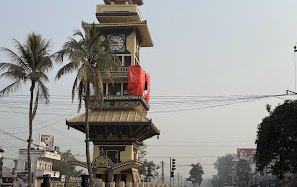
Dissolving the House of Representatives, Prime Minister K.P. Shama Oli has established himself as the leader of the party. Following the dissolution of the House, Nepali politics has been polarized against PM Oli. This will politically benefit him in the long and short runs. Holding periodical elections and mid-term polls is a regular phenomenon in the democratic process. In a parliamentary democracy, the prime minister has certain prerogatives to test his popularity, calling the fresh election whenever he feels it appropriate. However, Nepalese political parties have rarely taken the decisions to go for fresh mandate as the right process. Since 1990, sitting prime ministers have dissolved the House and called for fresh polls and the decisions have landed in the court seeking House revival. This time is no exception. With the decision of President Vidhya Devi Bhandari to dissolve the House of Representatives upon the recommendation of prime minister Oli, Nepal has entered into a new phase of political polarization, PM Oli Vs Rest. With the decision of Nepali Congress and Maoist leader Prachanda-led faction of NCP to challenge the dissolution in the court, it has creates an uncertainty whether to hold the elections or not. Although there are many likes and dislikes, seeking fresh mandate from people is a democratic exercise and political parties need to accept the challenge to go to the people. Divided on the basis of ideology, more than 12 petitions have already been filed in the court against dissolution order and main political parties have also decided to challenge it.

Keshab Poudel
Poudel is the editor of New Spotlight Magazine.
- ERC Nepal Is Focused On Expanding Distribution And Transmission To The Private Sector: ERC Chair Dr. Dhital
- Jul 06, 2025
- FOURTH PROFESSOR Y.N. KHANAL LECTURE: Nepal-China Relations
- Jun 23, 2025
- Colonel JP CROSS: Centenary Birthday
- Jun 23, 2025
- BEEN: Retrofitted For Green
- May 28, 2025
- GGGI has been promoting green growth in Nepal for a decade: Dr. Malle Fofana
- May 21, 2025















